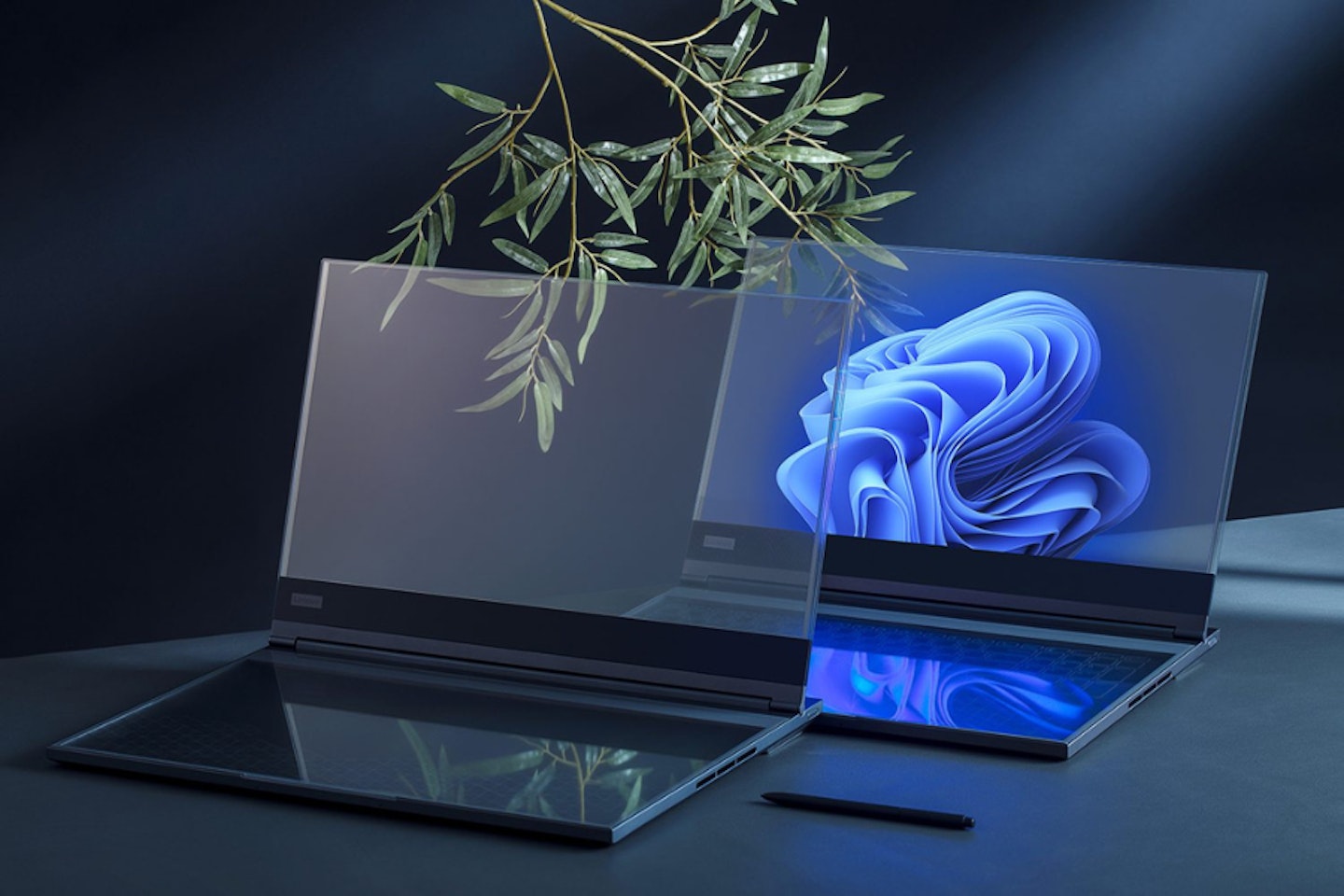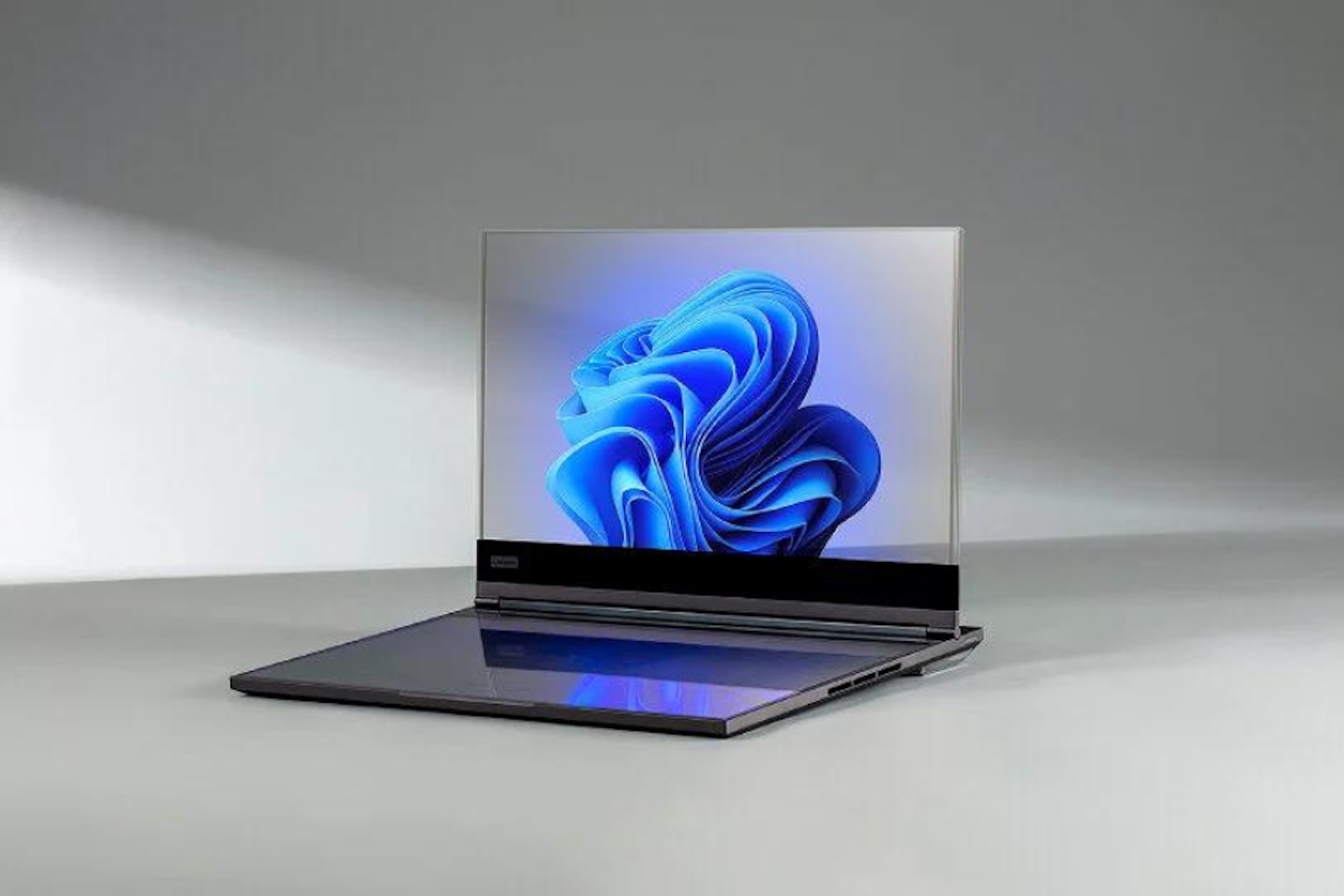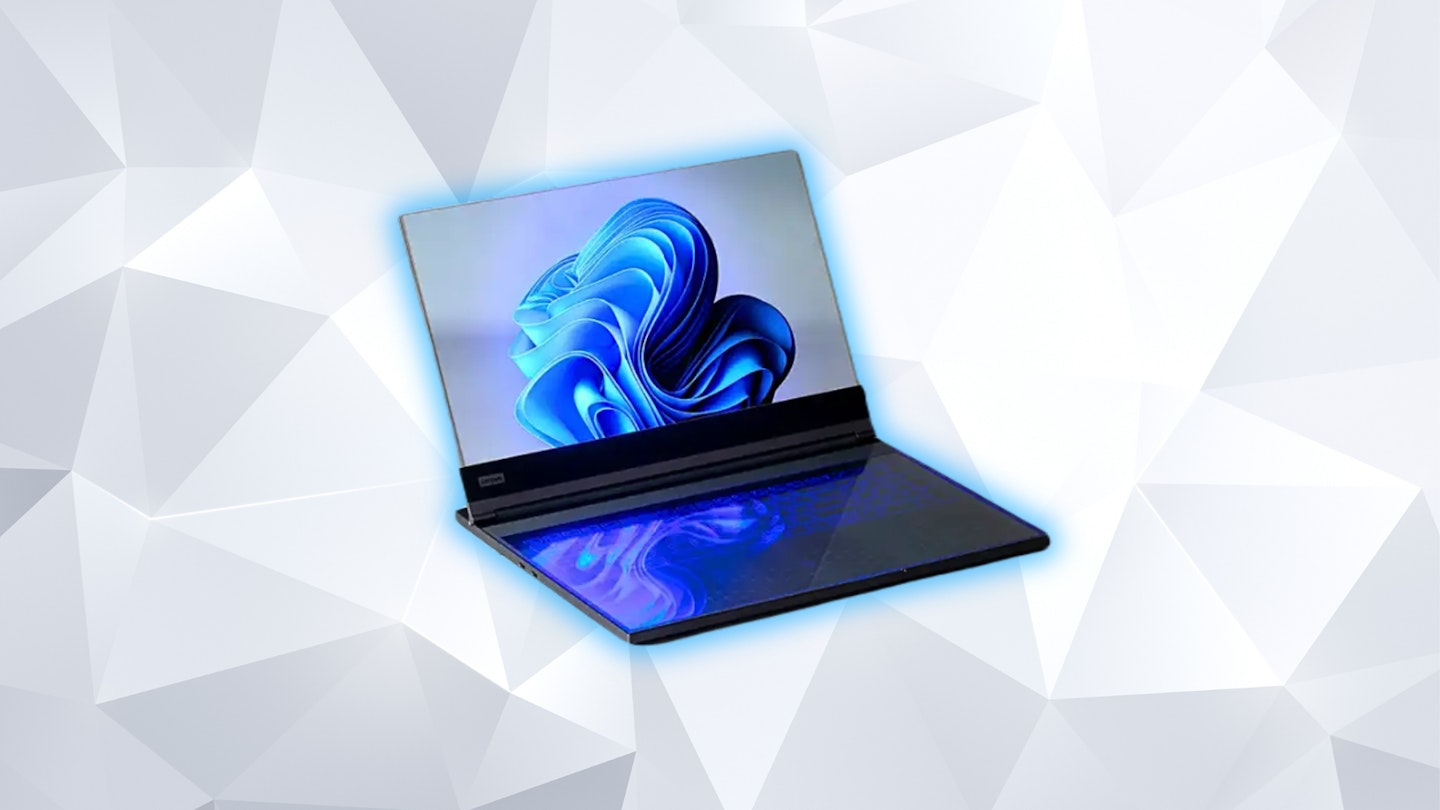Fans of the latest technological innovations, the best laptops, and everything reminiscent of science fiction will be excited to discover Lenovo's latest mesmerising technological advance in the form of a transparent AI-powered laptop.
Unveiled at MWC Barcelona, this proof-of-concept laptop has a 55 per cent transparent 17.3-inch Micro-LED display with a peak brightness of 3,000 nits, far exceeding your standard smart TV.
A true industry first, Lenovo's stunningly designed ThinkBook might seem like a showpiece, but with the rise of mixed reality technologies, Lenovo foresees the transparent ThinkBook utilising generative AI to interact with the physical world. Being able to mix virtual and actual objects seems like a fun idea, but as for the true applications of such technology, only time will tell.
Lenovo's proof of concept Crystal transparent laptop: what we know so far

This proof-of-concept transparent laptop also doesn't have a physical keyboard, but rather a pane of glass, which some may consider a little too much. Yes, we enjoy the tactile typing of smartphones, but replacing a clicky keyboard might be a step too far, and its tough to replace the amazing touchscreen laptops that Lenovo already has to offer.
The real reason for the lack of a keyboard, however, is the Lenovo ThinkBook's graphic design options, which transform the keyboard space into what is essentially a graphics tablet.
Mixed reality and graphic design, there may be some genuinely fascinating applications of such technology, but we may be a long time off seeing any commercial availability of such a product.
What issues could a transparent laptop face?
A transparent laptop may sound brilliant in concept, but for most, it does leave us scratching our collective heads. What is the true purpose of a transparent laptop?
To us, if you're tucking into work and writing away, being able to see your office space or desk through your screen may prove totally distracting. And what's more, if there are any bright lights, glass is bound to reflect and distort the user's vision, which even a 3,000-nit display might not be able to tackle.
And of course, being such an emergent technology, the Lenovo ThinkBook transparent laptop only currently has a display with a 720p resolution, which is HD, but not full HD.
The setbacks for this are not negligible, and if there are any releases planned for the near future, a 720p laptop compared to countless laptops under £500 offering a full HD screen at a fraction of the price might seem like a wasted investment, there's no telling quite how much a laptop with such new technology will be priced.
There's also the issue of durability: a glass screen like that might not be appropriate for lugging around in a backpack on public transport, and might be subject to easy scratches.
Of course, in the Lenovo StoryHub, they clarify that the early nature of the technology "offers more possibilities in the future for further optimization of image quality, durability and adjustable transmittance", all of which would see this admittedly niche laptop become a far more worthwhile investment.
Lenovo's AI revolution: not just proof-of-concept

Lenovo's show at MWC Barcelona didn't just include talks of transparent laptops. A large portion of the show was dedicated to Lenovo's increasing AI support in its laptops, and just how in every manner AI can be used to improve the overall user experience.
From enhancing security, offering "an optical ecosystem of AI hardware and software" which is promising for those who enjoy using countless smart devices, and would prefer not to buy new products every year. Lenovo's AI can also potentially improve power efficiency in devices, all the while utilising hardware to its maximum potential.
Boosting productivity, streamlining work and making user experiences all that more seamless, Lenovo's picture of the future of AI is nothing if not impressive.
Will we see a release of Lenovo's transparent laptop this year?
Chances are, we're not going to be seeing this proof-of-concept laptop anytime soon. Rather, this was Lenovo simply displaying the capability of its technology, and the future potential of both Micro-LED technology and AI.
This isn't set in stone, however, and we may be surprised to discover transparent laptops on the market soon - but this isn't likely.
That being said, Lenovo has created something that is bound to stir up the technology community in both good ways and bad, and we are simply excited to be along for the ride.
Ryan Houghton is a commercial content writer for What’s The Best, known best for his expertise in gaming, with a particular soft spot for PC gaming, audio tech, televisions and smartphones.
Diligently writing for What’s The Best for almost two years, there are very few tech products Ryan hasn’t had his hands on to review; televisions, headphones, folding phones and even LEGO, if it’s nerdy, he’ll be there.
His well-versed history as one of the resident techies at What’s The Best has kept him keen to uncover the very best deals, savings and offers for those in need of a cracking deal to upgrade their setup.
In his downtime, Ryan most likely has his nose buried in a fantasy book, or his eyes glued to a screen whilst playing a tough-as-nails Soulslike or leisurely RPG, indulging in most forms of escapism where possible.
Subscribe to the What’s The Best Newsletter to keep up to date with more of the latest reviews and recommendations from the rest of the What’s The Best team.
